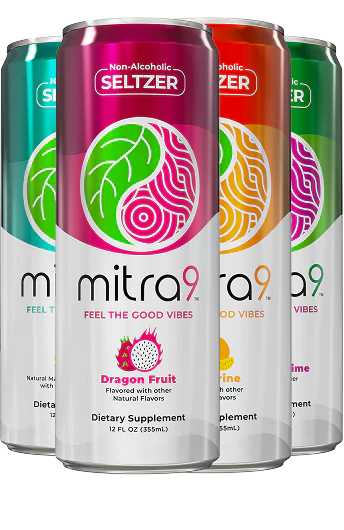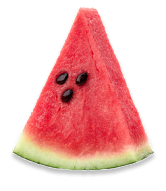In the quest for sobriety and healthier lifestyle choices, many individuals recovering from alcoholism are turning to alternative beverages. One such alternative that has gained significant attention is Kava, a traditional Pacific Island drink known for its calming effects. This article explores why Kava is emerging as a popular substitute for alcohol among recovering alcoholics, examining its properties, benefits, and role in supporting sobriety.
Understanding Kava: A Cultural and Historical Perspective
Kava, derived from the root of the Piper methysticum plant, has been consumed for centuries in Pacific Island cultures for its sedative and euphoric properties. Traditionally used in social gatherings and ceremonial rituals, Kava promotes relaxation without the cognitive impairment associated with alcohol. This historical and cultural background lends Kava a sense of ritual and community, which is often sought after by those in recovery from alcoholism.
The Appeal of Kava to Recovering Alcoholics
1. Non-Alcoholic Relaxation:
One of the primary reasons Kava appeals to recovering alcoholics is its ability to induce relaxation and reduce anxiety without alcohol. The active compounds in Kava, known as kavalactones, interact with the brain in a way that promotes calmness and a sense of well-being, similar to the relaxing effects of alcohol but without the negative health impacts or risk of addiction.
2. A Social Beverage Alternative:
Socializing without alcohol can be challenging for recovering alcoholics. Kava bars provide a sober alternative where individuals can socialize in a relaxed environment. This aspect of Kava consumption helps fulfill the human need for social interaction, which is often associated with drinking culture, but in a safe, alcohol-free setting.
3. Health Benefits:
Unlike alcohol, which has numerous negative health implications, Kava is believed to have health benefits, particularly in terms of mental wellness. It's known for its stress-relieving qualities and is used by some as a natural treatment for anxiety and insomnia, common issues among those recovering from alcohol dependence.
4. Supporting Sobriety:
For those in recovery, finding non-alcoholic beverages that provide a sense of relaxation and ritual can be crucial in avoiding relapse. Kava offers a way to unwind and de-stress, much like alcohol, but in a way that supports rather than undermines sobriety.
5. Cultural and Ritualistic Aspects:
The ritual of preparing and consuming Kava can be therapeutic. The process, which involves mixing the Kava powder with water and often sharing it in a communal bowl, provides a sense of community and ritual that many recovering alcoholics find missing after they stop drinking alcohol.
The Science Behind Kava: How It Works
Kavalactones, the active ingredients in Kava, are known to affect the brain's limbic system, which is responsible for emotions and anxiety regulation. Unlike alcohol, which depresses the central nervous system leading to impairment and potential addiction, Kava's interaction with the brain is different. It provides relaxation without significant impairment of cognitive functions or addictive tendencies.
Potential Concerns and Considerations
While Kava is beneficial for some, it's important to consider potential downsides:
-
Liver Health: There have been concerns about the impact of Kava on liver health. However, these concerns mainly relate to poor-quality Kava products. It's crucial for consumers, especially those with a history of alcohol abuse, to use high-quality, noble Kava and consult with healthcare professionals.
-
Quality and Regulation: The Kava market varies in quality and regulation. Consumers should be mindful of sourcing Kava from reputable vendors to ensure they are consuming a safe product.
-
Interaction with Medications: Individuals in recovery often take medications. It's important to consult with a healthcare provider before incorporating Kava, as it may interact with certain medications.
Kava in the Context of Recovery Programs
Recovery programs often emphasize holistic approaches to sobriety, including finding safe and healthy alternatives to alcohol. Kava can be integrated into these programs as a tool for socializing and relaxation. However, it's essential to approach its use with caution and awareness, considering each individual's unique journey in recovery.
Personal Stories: Testimonies from Recovering Alcoholics
Anecdotal evidence and personal stories reveal how Kava has positively impacted the lives of those in recovery. Many report that Kava has provided them with a sense of normalcy in social settings and a safe way to relax and unwind, crucial elements in maintaining long-term sobriety.
Kava's Role in the Broader Sobriety Movement
The growing sobriety movement, which promotes alcohol-free lifestyles, has embraced Kava as a viable alternative. This movement not only supports those in recovery but also encourages a broader cultural shift towards healthier, more mindful consumption habits.
Conclusion: Kava as a Stepping Stone to Sober Living
For recovering alcoholics, Kava represents more than just a non-alcoholic drink; it's a tool that supports the journey towards a healthier, more balanced lifestyle. Its ability to provide a safe, communal, and relaxing experience makes it a valuable ally in the path to recovery. While it's not a one-size-fits-all solution and should be used with caution, Kava's growing popularity among those seeking a sober lifestyle underscores its potential as a beneficial alternative to alcohol.


























































